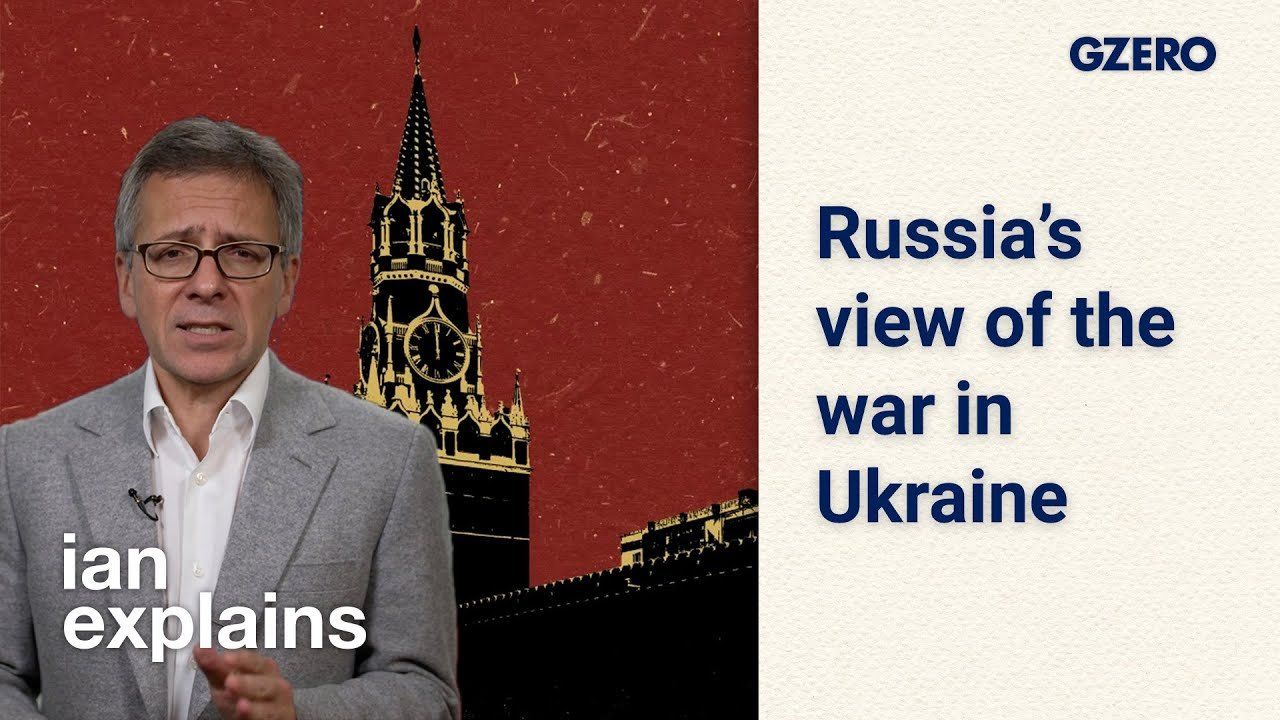Ian Explains
Ian Explains: What the war in Ukraine looks like inside Russia

Ian Explains: What the war in Ukraine looks like inside Russia | GZERO World

Why do so many Russians continue to support the war in Ukraine? And what does public support even mean in a country with no viable political opposition, no independent media, and an autocratic government bent on controlling the narrative?
On Ian Explains, Ian Bremmer takes a look at the Russian media landscape and breaks down why Russians see the Ukraine invasion as an existential battle for the future of the country. Popular political talk shows, watched by millions of Russians in prime time every night, reflect the Kremlin’s messaging priorities and magnify themes established by Putin himself --- namely, that the collapse of the Soviet Union was the “greatest geopolitical catastrophe of the 20th century” and the collective West, led by the United States, wants to destroy Russia.
The messaging on Russian TV will be critical for the Kremlin to maintain support as the highly-anticipated Ukrainian counteroffensive kicks off in earnest. And after 24 hours of chaos following Wagner Group head Yevgevny Priogzhin’s armed rebellion against the Russian military, sudden reversal, and exodus to Belarus, Putin needs to project an image of total stability and complete control.
Will Putin be able to control the message after such a brazen, public challenge to his authority? And how is the Ukrainian counteroffensive playing inside Russia?
Watch Ian Explains for the full breakdown, and for more on Russia, watch GZERO World with Ian Bremmer on US public television and at gzeromedia.com/gzeroworld.
With close ties to both the US and China, can Singapore survive in an increasingly fragmented and chaotic world? Singapore’s President Tharman Shanmugaratnam joins Ian Bremmer on the GZERO World Podcast.
Think you know what's going on around the world? Here's your chance to prove it.
This week, Prime Minister Keir Starmer became the first UK leader to visit China in eight years. His goal was clear: build closer trade ties with Beijing.